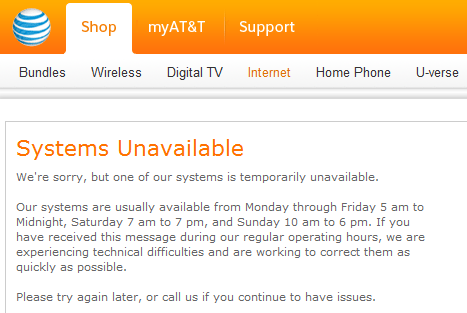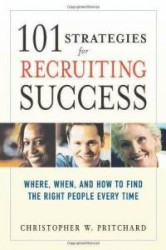Recently Jason sent me an email about being in HR (entry level HR, to be specific). He gave me permission to post his comments and my responses below.
I actually stumbled upon your blog/site while searching for tips on how to land an entry-level HR position.
I am in the same boat as you (were) — currently in an HR position (internship) and dying to have more responsibility. I have applied for numerous HR positions, from small companies to large corporations. I am having the hardest time landing a full-time permanent job!
A little about myself, I graduated with my BBA in May of 2010. I then continued on to get my Master’s in HR (will be graduating this December!). Since Jan. 2010, I have held 4 HR internships… almost 2 years in the HR profession. Although, I feel that many employers do not consider this to be “2 years of professional experience”, as it is not 2 years of full-time and/or progressive experience.
May I ask, are you currently in the same HR Generalist position that you mentioned in your blog about a year ago? If so, how are things going? Is it what you expected it to be? Have you developed an interest in any particular area of HR now that you have had taste of all the areas?
I’m so stoked to have found someone in a similar position, a guy too! I’ve noticed that HR is a female dominated profession… what are your thoughts on this?
Hey, Jason! Thanks for reaching out.
First off, good for you in seeking to find ways to move up and gain more responsibility. Some people are content with never having responsibility at work (it’s safer, but less adventurous!).
Converting an internship to a job
It sounds like you have the education part down without a hitch, so let’s look at your work experience. Of those 4 HR internships, why did they end? I’m assuming your work is of good quality, because being able to take it further than a short term internship hinges on that detail. If I was in your shoes I would be talking with the company a month before the internship is over and looking for ways to make it a permanent/full time position. Bring some ideas for how to make the HR department better/smarter/faster. Show how they would benefit from bringing you on full time; don’t just make it about you needing a job, because that will get you nowhere.
We had an intern work for us this summer, and before she went back to school she asked how she could continue to work with us and support us remotely. We were able to let her complete some routine reporting tasks and she maintains a relationship with the company as she gets closer to graduation. Very smart move on her part.
If I looked at your resume, I would consider the HR internships to be “professional experience” unless something else on there indicated it was not. Some companies still waste/misuse their interns and use them as coffee carriers, but others actually give them challenging work that stretches their abilities for the duration of the internship. I haven’t seen your resume, but if you are including details about the work you’ve accomplished in the internship experiences, then that will give the employers the impression of professional or not.
My story
My current position as an HR Generalist was a slow (to me, at least) growth. I started as an HR assistant for another company a few years back. Last November, I came on with my current employer Pinnacle Solutions as an HR Specialist. Since then I’ve done everything from benefits to recruiting to employee relations and beyond, so my title was changed this summer to HR Generalist to better reflect my actual work duties.
My situation is somewhat unique in that I work for a small, growing company. I absolutely love where I work and what I do, and the professional (and personal) growth I’ve experienced in the past 10 months is astounding to me. When someone is in your position, it sometimes feels like you will never move up in HR. Then something happens (often unexpectedly) that sends your career through the roof. Looking back now if I would have had this job last year at this time, I would have been pulling my hair out. See, I have twin girls and they were about a month old at this time last year, so that would have been nuts. However, once things settled down at home, I found the perfect job for me. Sometimes frustrations can be blessings in disguise.
My (HR) likes and dislikes
This might surprise you, but I don’t particularly enjoy talking to new people face to face. I’m pretty darn shy. But, surprisingly, I have enjoyed recruiting and communications as my two favorite HR roles. Now, some would argue that neither of those is “real” HR, but since I’m at a small organization I handle everything in the recruiting process from the manager opening a requisition through to the orientation and onboarding process. Throughout that entire experience I communicate our corporate culture for new hires and help them to have a foundation for success from their first day on the job.
I’m not a fan of benefits administration, compliance tasks, or anything that requires hands-on administrative type work. I want to be engaging with staff, managers, and the senior leadership, not completing a form. However, since I’m at a small organization, I get to do each of those things as well as the fun stuff. It balances out. :-)
Tell the guys, we’re taking back HR
As for HR being a female-dominated field, I’d like to see some current statistics on that compared with the HR population a few years back. I’d like to think that more men are getting into it, but I can’t back that up at this time. It’s definitely an interesting phenomenon and I’d love to discuss more if someone has research to share. A good post I can recommend on this is one I wrote last year around this time called “Men in HR-A National Geographic Exclusive.” It starts off funny but has some great tips and pointers for a young guy getting started in the profession. If you’re a young lady getting started in HR, it wouldn’t hurt to check it out either!
Again, I appreciate you reaching out, Jason! I hope this answers your questions in a valuable way. If anyone else has questions or suggestions for post topics, please feel free to let me know!

